‘Take Care of Maya’ trial: Doctor who prescribed ketamine treatments testifies in $220 million case
SARASOTA, Fla. - One day after Maya Kowalski, the teenager at the center of a $220 million lawsuit against Johns Hopkins All Children’s Hospital took the stand, the doctor who diagnosed Maya with Complex Regional Pain Syndrome, or CRPS, and prescribed ketamine treatments testified in court.
Dr. Anthony Kirkpatrick took the stand Tuesday afternoon in front of a jury after initially answering questions without a jury present about videos Maya' mother, Beata Kowalski, took in the fall of 2015. The judge ruled Dr. Kirkpatrick did not give his consent to be recorded on the two dates in question.
When the jury was called in, he told them that Maya was in extreme pain and couldn’t walk when she and her mother sought his expertise.
"A light touch, blowing on the skin, is perceived as being painful. She had that. She had a bad case of it," Dr. Kirkpatrick said.
Dr. Kirkpatrick diagnosed Maya with CRPS. He prescribed a series of lower dose treatments of ketamine, a type of painkiller, which Maya said helped, but not enough. That’s when Dr. Kirkpatrick recommended a high-intensity treatment in Mexico, which he said was a success.
Dr. Kirkpatrick said he discussed Maya’s condition with Johns Hopkins All Children’s Hospital.
"I emphasized that if she doesn’t get the ketamine, it’s going to be a slow, painful death," Dr. Kirkpatrick stated.
However, the hospital disagreed with the treatment.
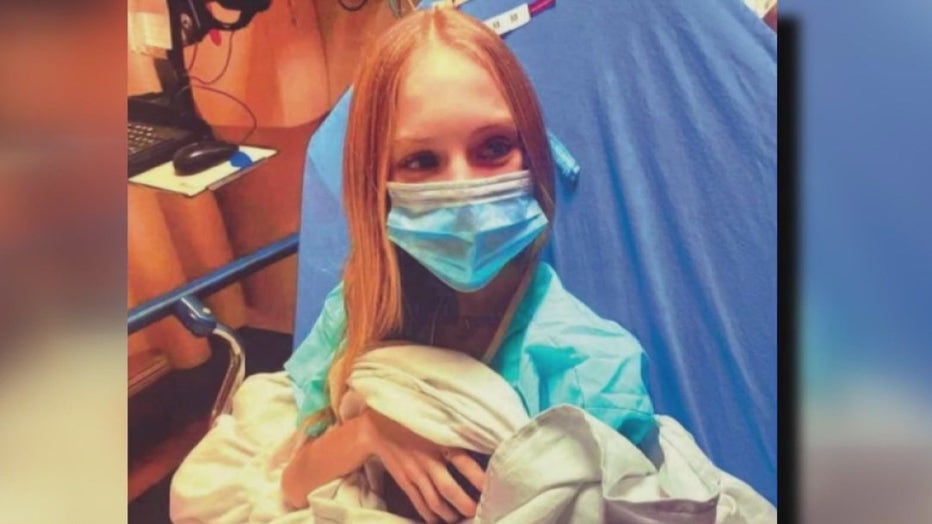
Maya Kowalski in the hospital.
During an emotional day of testimony, Maya, who is now 17, told the jury about her experience being in state custody at the hospital for three months and eventually being allowed to leave after her mother, Beata Kowalski, died by suicide after being kept away from her daughter for 87 days.
On Monday, Maya told jurors, the day her mother took her own life, she had a sickening feeling that something bad had happened.
"At two in the morning, I broke down in tears. I was just crying uncontrollably," she said adding she called for a nurse. "I told her, I miss my mom. I miss my mom. I love my mom. I want to go home to my mom. Turns out she ended her life."
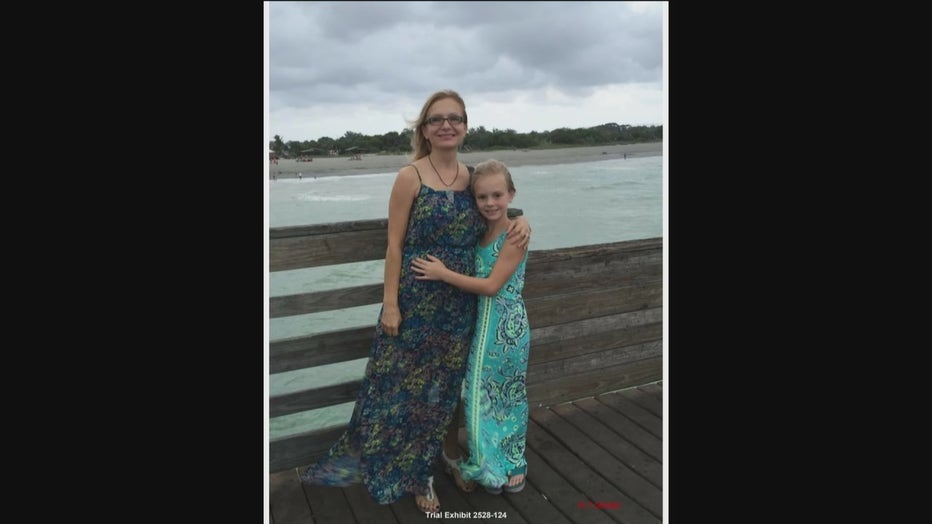
Pictured: Maya and Beata Kowalski
Maya's testimony went from heartbreak to anger, as she described the amount of time she was allowed to spend with her family the day her mother passed away.
RELATED: ‘Take Care of Maya’ trial: Maya testifies in $220 million case against All Children’s Hospital
"It was actually so unbelievably cruel. The amount of time they allocated for me to spend with my family after hearing such awful news," she said.
Maya Kowalski takes the stand
On Monday, Maya Kowalski took the stand in the 'Take Care of Maya' trial and told the jury about her experience being in state custody while at Johns Hopkins All Children’s Hospital for three months.
Last Monday, jurors were read two notes that Maya’s mother left behind before she took her own life. She left one note for her family and another note for the judge overseeing the custody decision.
In the note, Beata Kowalski said the judge destroyed her family, and marriage and caused the family to go bankrupt because he kept her away from Maya.
The Kowalski family is suing Johns Hopkins All Children’s Hospital claiming its actions and the actions of DCF drove Beata Kowalski to take her own life. The Kowalski's say the hospital medically kidnapped Maya and battered her while in their care.
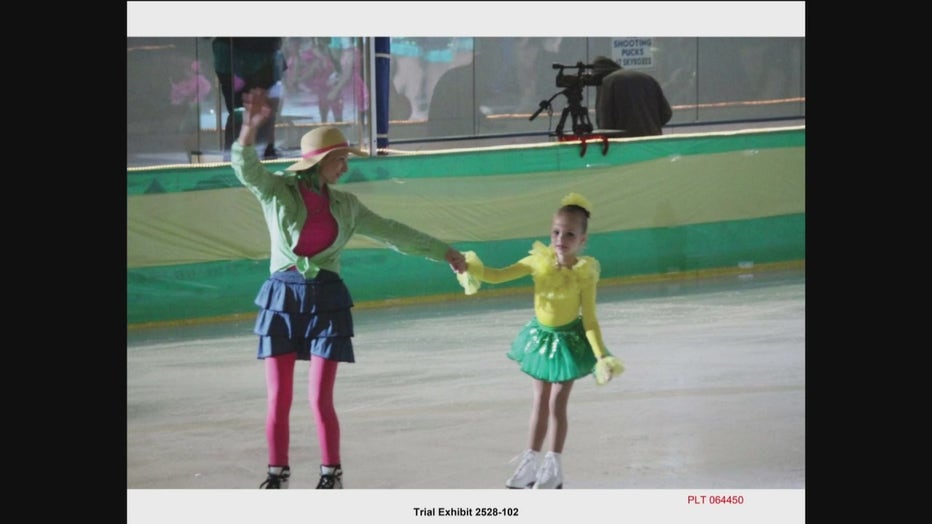
Maya and Beata Kowalski perform a figure skating routine.
Why was Maya in the hospital?
The Kowalski’s say they took Maya to Johns Hopkins All Children’s Hospital in October 2016 when she was experiencing a flare up of pain from CRPS.
Maya told jurors her condition would leave her screaming in pain and unable to walk at the time. She said she received the painkiller ketamine during a series of intense treatments in Mexico, in which she was told there was a 50 percent chance of death.
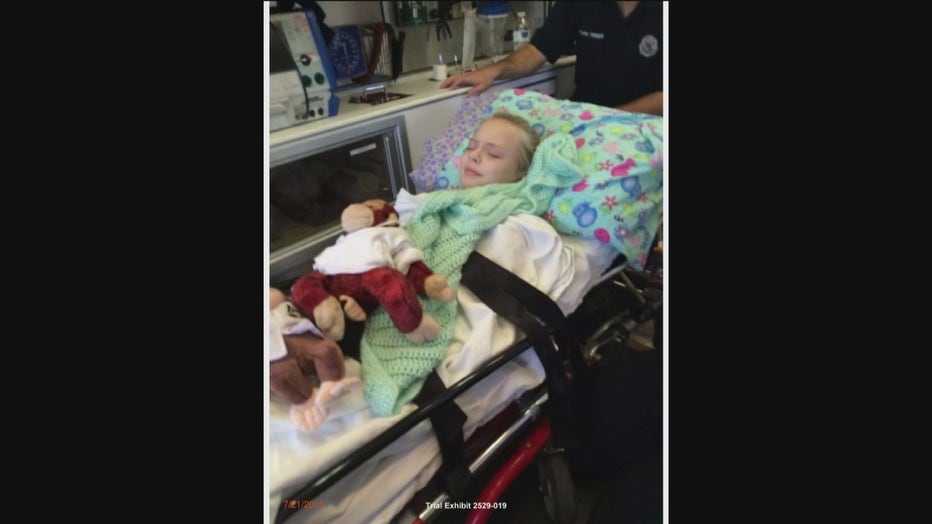
Pictured: Maya Kowalski
She went on to say that the ketamine treatment worked, and she was improving until the October 2016 flare up.
Beata Kowalski insisted that she receive ketamine at Johns Hopkins All Children’s Hospital. But staff at the hospital disagreed with the treatments.
Her persistence alarmed hospital staff and they called in a report to the Child Abuse Hotline. They suspected Beata Kowalski, who was a registered nurse, was making her daughter sick.
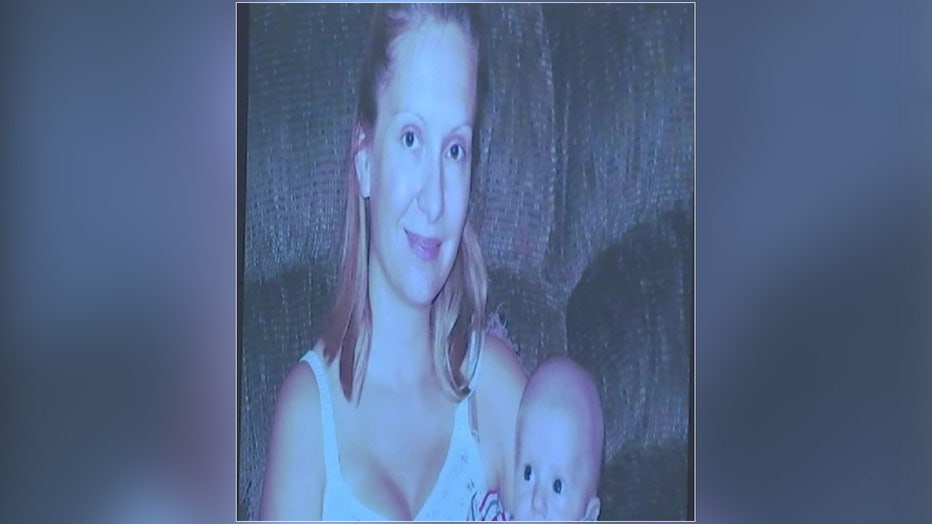
Pictured: Beata Kowalski
When the hospital’s attorney, Howard Hunter, began his opening statements, he noted that several hospital staffers believed Beata Kowalski suffered from Munchausen by proxy (MBP) and they were trying to protect her.
Why was Maya kept away from her family?
A judge ordered Maya to be sheltered at the hospital while the child abuse allegations were investigated. She wasn’t allowed to be discharged to her family or another treatment facility and could not see her mother. A judge ordered her to remain at the hospital under state custody.
Maya said, during her three months in state custody at the hospital, there was a 48-hour period where she was isolated in a hospital room. Maya said staff wouldn't help her go to the bathroom and, instead, tried to see if she could actually walk, but she couldn't.
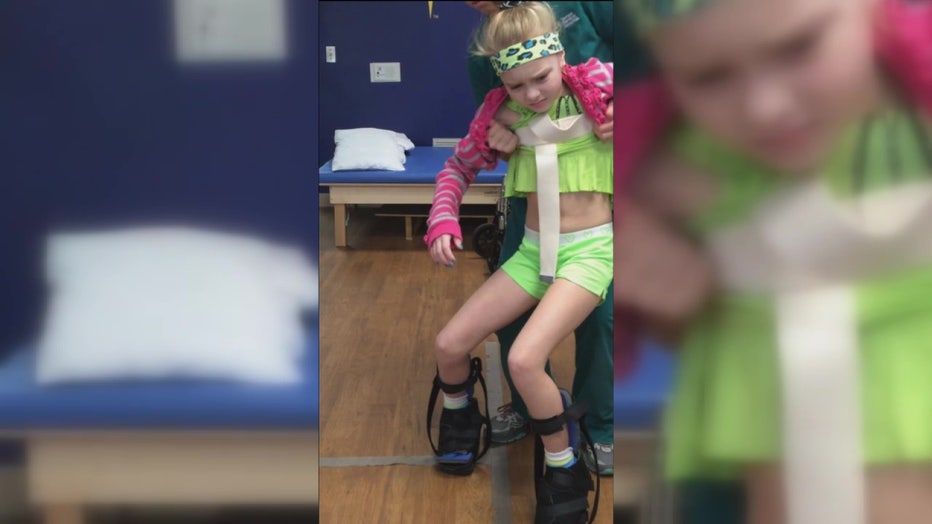
A video of Marissa Higgins helping Maya try to walk was shown in court on Friday.
"They left me there for 48 hours under surveillance, which they did not tell me about. They had a commode in there, and they just put it far enough away from the bed. So, I would have to physically stand up and use the bathroom," said Maya. "I called the nurses whenever I had to use a bathroom because obviously, I'm not able to walk. And when they refused to help me go to the bathroom, I would defecate on myself."
She described some nurses as mean and unhelpful, and others as compassionate and willing to help. Her testimony on Monday was emotional at times as she expressed her frustration.
"When I express to them a symptom or like my pain, they would say, 'No, you're making it up,' or 'it's in your head,'" Maya said.
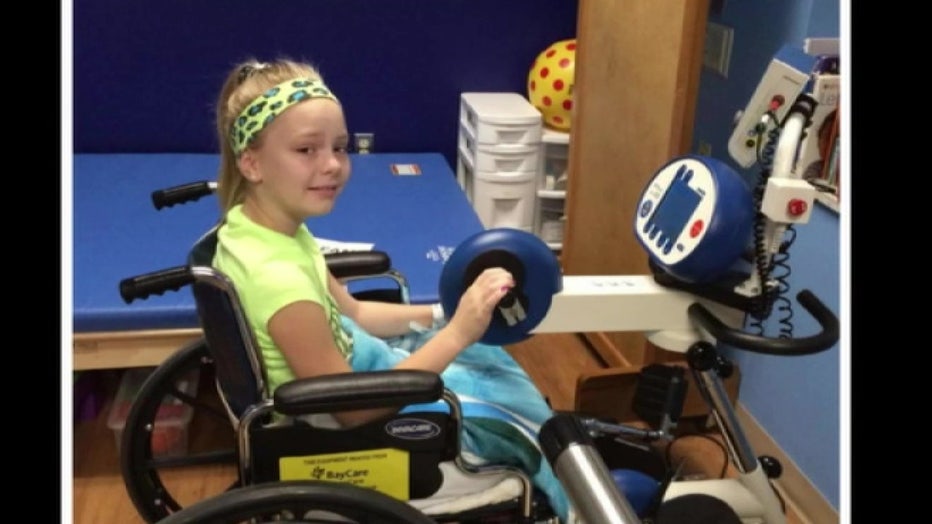
Maya Kowalski sits in a wheelchair.
Jack Kowalski, Maya’s father, testified last week that his family was told they would be arrested if they left the facility with Maya.
He went on to describe how the hospital treated those who tried to visit Maya.
"Did you learn through the course of this that they believed Beata was slipping ketamine through the holy water and wafers?" the Kowalski's family attorney Greg Anderson asked.
"I know it didn’t happen, but they had all different ideas," Jack Kowalski replied.
Maya Kowalski's dad testifies
Maya Kowalski's father, Jack Kowalski, described the pain his daughter was experiencing as she suffered with Complex Regional Pain Syndrome when he took the stand Monday afternoon in a $220 million case against Johns Hopkins All Children's Hospital featured in the Netflix documentary 'Take Care of Maya'
Anderson argued those theories resulted in Beata Kowalski’s desperation and death by suicide.
"I saw my child deteriorating. I go home, I see my wife deteriorating," shared Jack Kowalski while on the witness stand.
PREVIOUS: ‘Take Care of Maya’ trial: What will the jury hear? Lawyers argue over evidence, witnesses in case
Attorney Mark Zimmerman, who represented Maya when she was at Johns Hopkins All Children’s Hospital, said he felt as if the facility, and, in particular, social worker Catherine Bedy, tried to put up barriers for him to access Maya.
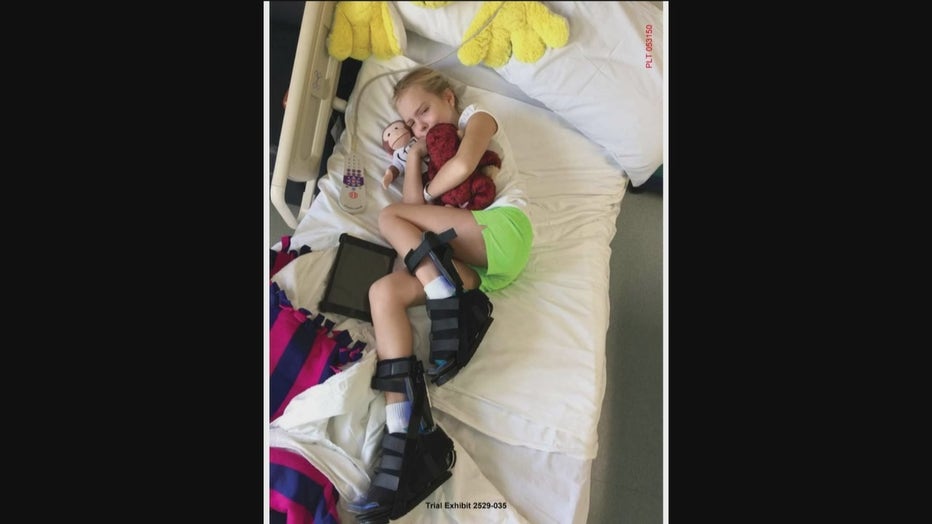
Pictured: Maya Kowalski with boots on her feet.
"The hospital personnel, and specifically this one social worker, was limiting her freedom…Why that was? I didn’t know. But that was clearly her goal to isolate this child from her family and her lawyer," he said.
"Could they violate the orders Mr. Zimmerman?" asked a defense attorney.
"They were interpreting the orders, so they were complying on the orders based on their interpretation of the orders," said Zimmerman.
Jurors watched a taped deposition of Bedy last Thursday. The Kowalski family dropped its case against Bedy shortly before the trial began.
Social worker deposition in 'Maya' trial
Jurors in a Sarasota County courtroom watched a video deposition from social worker Catherine Bedy as a $220 million case against Johns Hopkins All Children’s Hospital featured in the Netflix documentary ‘Take Care of Maya’ continued Thursday morning.
Bedy began her deposition by explaining how she was written up by the hospital after yelling at a co-worker after an attorney asked her if she had ever been disciplined at work.
The battery allegations from the Kowalski family stem from Bedy and others holding Maya down for unwanted photos and unwanted comforting.
She went on to described how she met Maya and accused her mother, Beata Kowalski, of having Munchausen by proxy, but admitted she was not an expert on the disease and stated she had only worked with three similar cases.
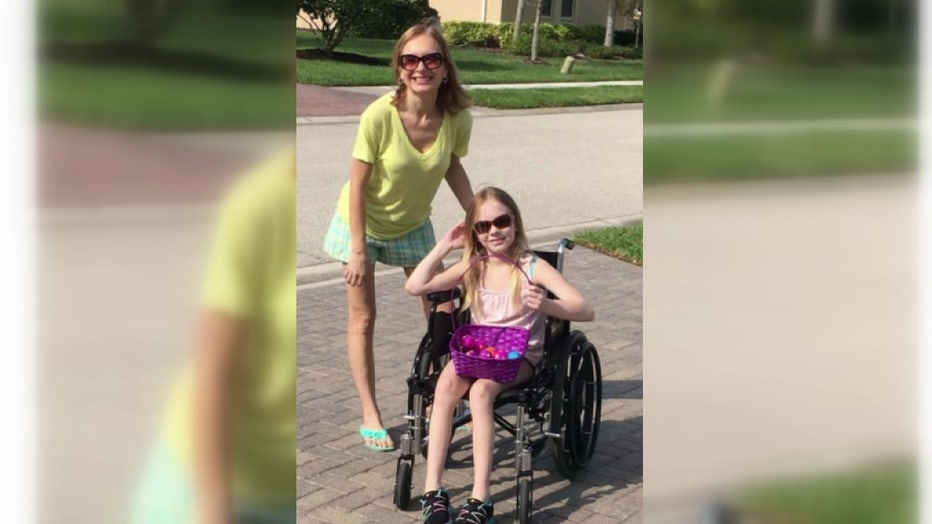
Pictured: Beata and Maya Kowalski
Bedy said she saw Beata Kowalski demand ketamine for her daughter. Although the hospital says it believed the ketamine treatments were too dangerous, Bedy admitted that the facility did not take into consideration that Maya had been prescribed the ketamine treatments.
After seeing Bedy’s deposition on Thursday, the jury was dismissed, while the court held a hearing on future evidence in the case. During the hearing, Maya’s father Jack Kowalski was asked about Bedy, and he said Maya couldn’t stand her.
"She stated she placed her on the lap. I never gave consent by the way on that. She stated that she used to come in and slap her leg to see if she was in pain, she said she wanted to adopt her that her mother was in a mental home, so she could be like her mother while in the hospital," he said.
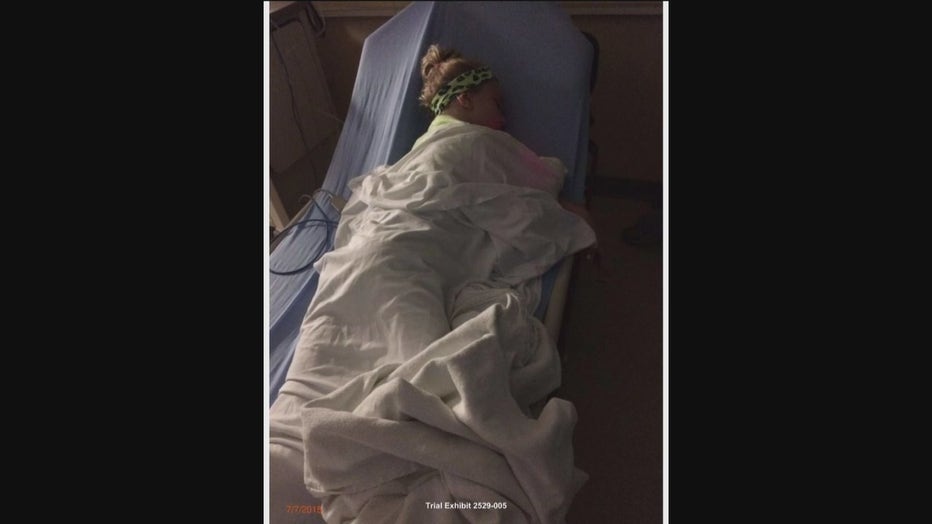
Maya Kowalski in hospital.
Why was Maya taking ketamine?
Beata Kowalski, who was a registered nurse, learned about CRPS from an infusion patient and began researching the disease. Her research led her to Dr. Anthony Kirkpatrick, who prescribed ketamine treatments.
"He explained the procedure. He talked about how it’s been around for quite a long time. He mentioned it’s used for many things, and it’s safe," Jack Kowalski stated during testimony on Monday. "The side effect when they’re coming out of it is a hallucination for a short time, but then everything is back to normal."
Upon cross-examination of Jack Kowalski, defense attorneys for the hospital questioned the family’s decision to move forward with ketamine coma treatment in Mexico.
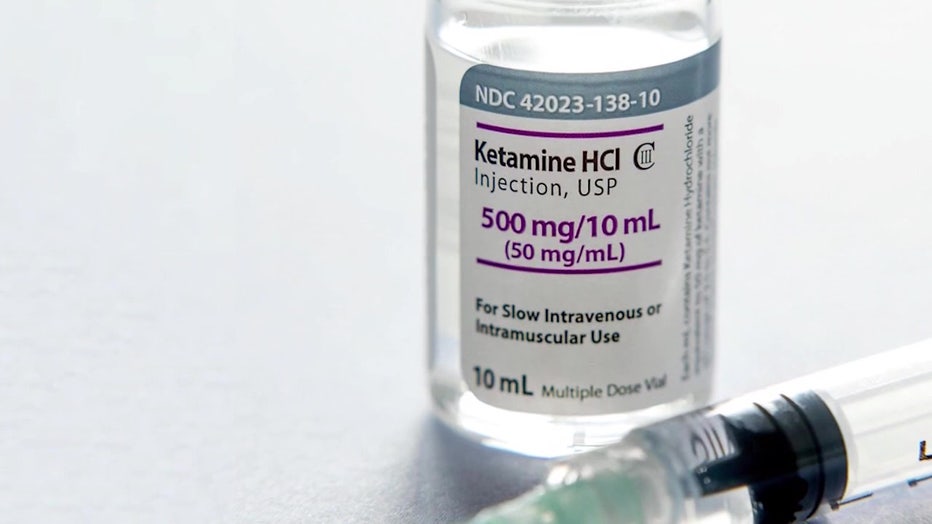
File: Ketamine
"Were you aware that the risk of death from that coma was 50%?" asked Ethen Shapiro.
"There is a risk in every procedure," Kowalski responded.
"I understand that Mr. Kowalski but respectfully there’s a risk and then there’s a risk that’s a coin flip in which your daughter could pass. Did you know it was 50%" Shapiro pressed on.
RELATED: ‘Take Care of Maya’ trial: Doctor who's treated thousands for CRPS testifies on behalf of Maya
"They stated it was 50%, but they stated no one every died from that procedure," responded Kowalski.
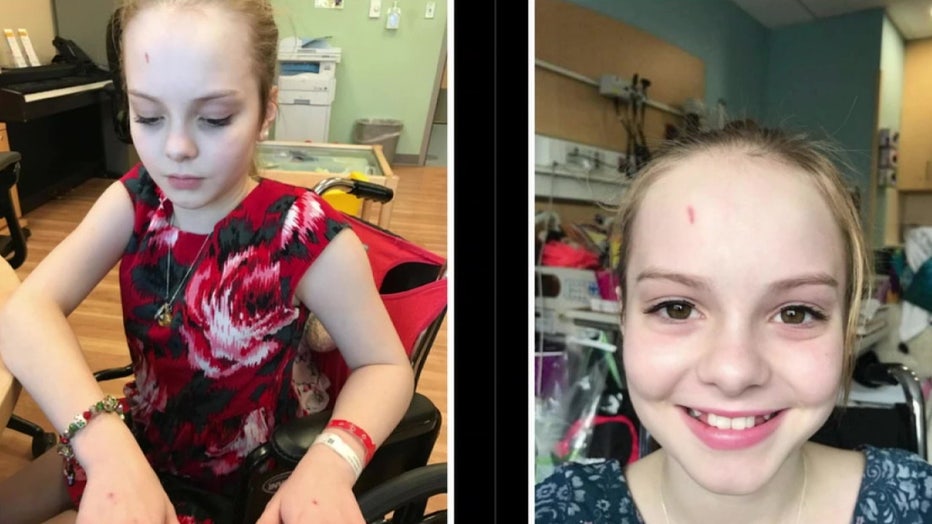
Side by side images of Maya Kowalski as she battled CRPS.
Maya’s father told the jury he and his family saw Maya slowly returning to herself following the ketamine therapy.
On Wednesday, Dr. Fernando Cantu, the doctor who administered Maya's ketamine coma, explained that while it will not cure CRPS, it is a treatment for the disease.
However, staff at Johns Hopkins All Children's Hospital disagreed with the ketamine treatments and suspected Maya was a victim of child abuse.
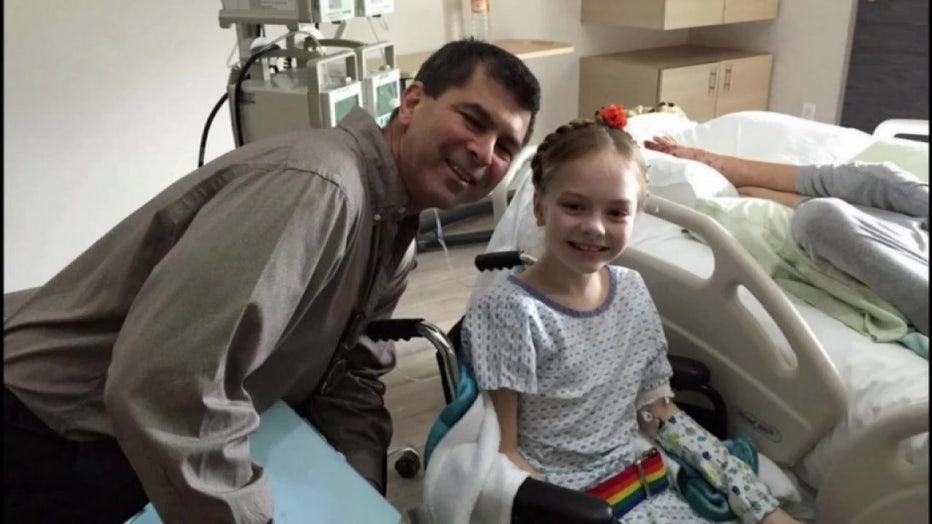
Maya and her physician Fernando Cantu.
What is Complex Regional Pain Syndrome?
CRPS is a rare pain disease that can follow an injury, and it’s tough to diagnose and sufferers are sometimes accused of faking their pain.
There’s no cure for CRPS and treatments can range from acupuncture and nutrition to physical therapy and massage or ketamine therapy.
Woman describes living with CRPS
As the trial between the family of Maya Kowalski and Johns Hopkins All Children’s Hospital continues, a woman who is also living with CPRS described what living with the illness is like
The Kowalski family attorney argued that the hospital staff refused to believe Maya had CRPS even after Dr. Kirkpatrick, who did not work for All Children’s Hospital, confirmed her diagnosis.
PREVIOUS: ‘Take Care of Maya’ trial: Testimony continues in $200 million case against All Children’s Hospital
The Kowalski family claims that while hospital staff was accusing them of lying about CRPS and refusing to treat Maya, the facility was billing the family and their insurance more than half a million dollars for that exact cause of illness.
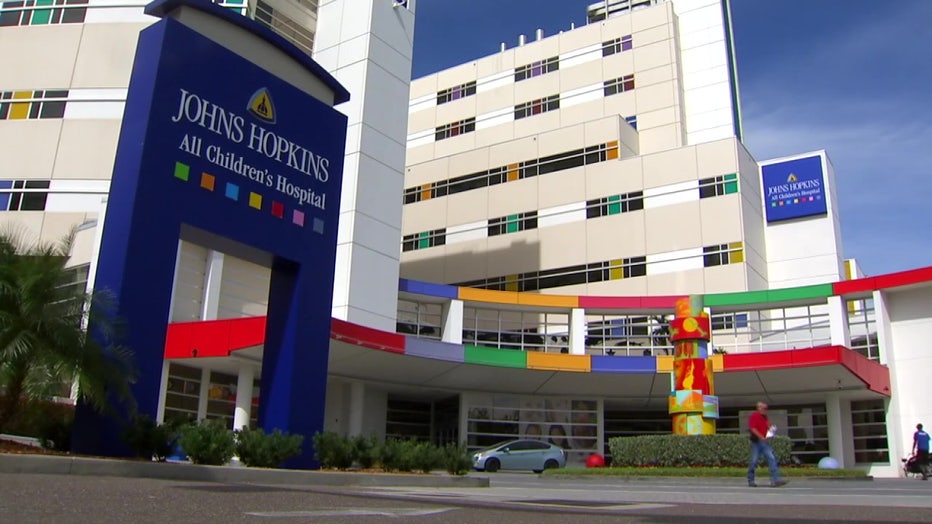
File: Johns Hopkins All Children's Hospital
Jurors will ultimately have to decide whether what happened to the Kowalski family could have been prevented and if the hospital’s actions pushed Beata Kowalski to take her own life.
"We ask in this case for you to consider not only compensatory damages to try to make them whole for these terrible things, but also punitive damages to deter them to punish them and to deter this type of behavior in the future," said Greg Anderson, Maya Kowalski’s lawyer.
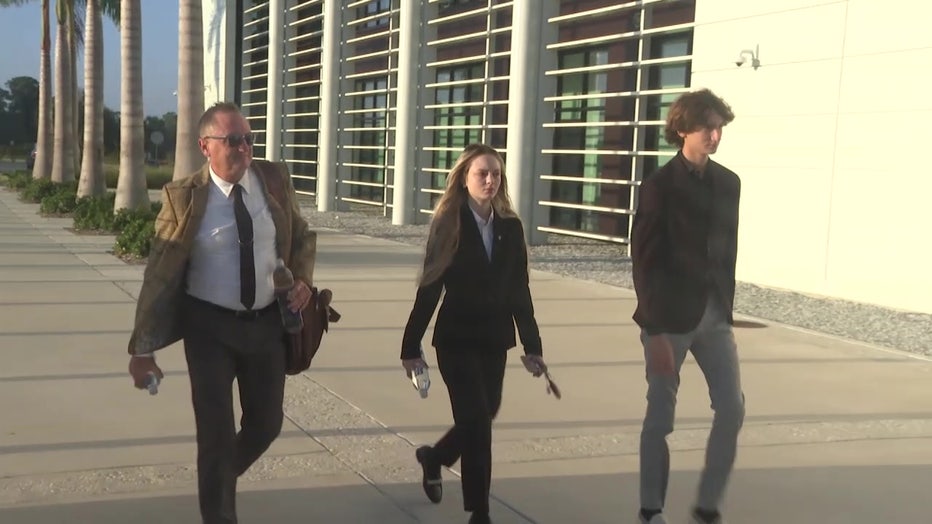
Maya and her father and brother walk outside a Sarasota County courtroom.
The family already settled with the DCF Suncoast Center and child abuse pediatrician Dr. Sally Smith, who once worked for the center, but is no longer employed by the organization.
The trial may last up to two months.

